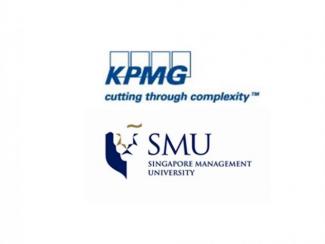
Singapore, 23 July 2014 - Corporate fraud in Singapore is on the rise. Released today, the new KPMG-SMU Singapore Fraud Survey 2014 report suggests that 29 percent of the survey respondents experienced fraud incident within their organisation over the past two years, up from 22 percent in the 2011 survey. For the first time, the survey was carried out in conjunction with Singapore Management University.
Internal fraud constituted 75 percent of fraud this year, up from 64 percent in 2011. This was also the top concern in KPMG’s previous survey report in 2011. More than half (53 percent) of respondents identified that a combination of weak or over-ridden internal controls was the leading cause of fraud.
The survey also found that employees formed the greatest proportion of perpetrators, jumping from 47 percent to 58 percent in this time period. Fraud incidents reported in 2014 involving board members and senior management officers remained unchanged from 2011 at 17 percent.
Bob Yap, Head of Advisory at KPMG in Singapore said: “The increase in internal fraud since 2011 suggests that while many companies in Singapore already have anti-fraud controls in place, these controls are often inadequate.”
He added: “With 58 percent of fraud being committed by employees, it is important to address this risk by setting a strong tone from the top – an organisation’s board of directors plays a critical role in the oversight of programmes to mitigate the risk of fraud and misconduct. The board, together with its management, is responsible for setting a moral tone and ensuring institutional support for ethical and responsible business practices at the highest levels of the organisation.”
More can be done to address fraud risk
More than half of fraud incidents were first detected by employees or customers, which suggests the importance of a people-focused approach to fraud risk management.
The survey also found that one in 10 respondents said that fraud incidents were first detected by data analytics or other investigative procedures. In light of this finding, Mr Yap said: “As the power and prevalence of data analytics increase, it is likely that the use of technological solutions to identify fraud will continue to grow.”
Prof Pang Yang Hoong, Dean, School of Accountancy at Singapore Management University said: “Promoting an anti-fraud culture and having management lead by example sends out a message that fraud will not be tolerated. Board members need to be encouraged to speak to employees and customers to identify and discourage fraud.”
The survey also revealed that while companies recognise the threat of fraud, they can do more to implement anti-fraud measures.
Findings indicate that:
· 85 percent of respondents said fraud and ethics policies were communicated to the employees, yet only 59 percent felt their employees were well informed of the risks of fraud.
· 78 percent of respondents said control measures were regularly reviewed for effectiveness, but only 58 percent monitor fraud risk indicators to pre-empt fraudulent activity
· 91 percent of respondents were concerned about the conduct of third parties, but only 41 percent communicated their fraud and ethics policies externally.
Citing the findings, Mr Yap said: “Organisations should periodically monitor the effectiveness of anti-fraud policies across their organisation. Monitoring plans should encompass activities that are tailored to the nature and degree of the risk involved, with higher-risk issues receiving priority treatment.”
He added: “The best time to plan is before a fraud occurs, not afterwards. Preventive measures are designed to help reduce the risk of fraud and misconduct occurring in the first place.”
Combating e-crime
With just 20 percent of respondents being completely satisfied with how their organisations were defending e-crime, more can be done to improve IT safeguards in terms of software, hardware or procedures.
The fast-evolving threats and the growing complexity of IT systems also adds to the unease around employee behaviour and the risk of customer or business data being stolen, falsified or misused.
Mr Yap commented: “E-crime is an emerging area of concern and tackling it is proving challenging in the absence of in-depth understanding of how e-crime occurs and how it can be prevented. The recent cyber attacks in Singapore clearly highlight the need for companies to develop a robust defense system to protect itself from the threats of the cyber world.
Understanding the trends in external threats and using this insight to formulate policy and strategy is critical to long-term incident prevention. Having strategic insight into cyber risks and understanding the impact on an organisation’s core business is paramount.”
He added: “Knowledge and awareness among end users is similarly critical. Returns from investing in IT security tools are best provided by staff who understand their responsibilities for keeping their networks safe.”
***
Note to editors
About the KPMG-SMU Singapore Fraud Survey 2014
In collaboration with the Singapore Management University, this survey was conducted in the last quarter of 2013. Questionnaires were sent to the top companies incorporated in Singapore and those listed on the Singapore Exchange and surveyed directors and senior executives across a broad range of industries and from companies.
The survey received 103 responses, with about 75 percent of these organisations having annual revenue exceeding S$50 million. More than 40 percent of the respondents were organisations’ chief executive officers, chief financial officers, audit committee members or board members.